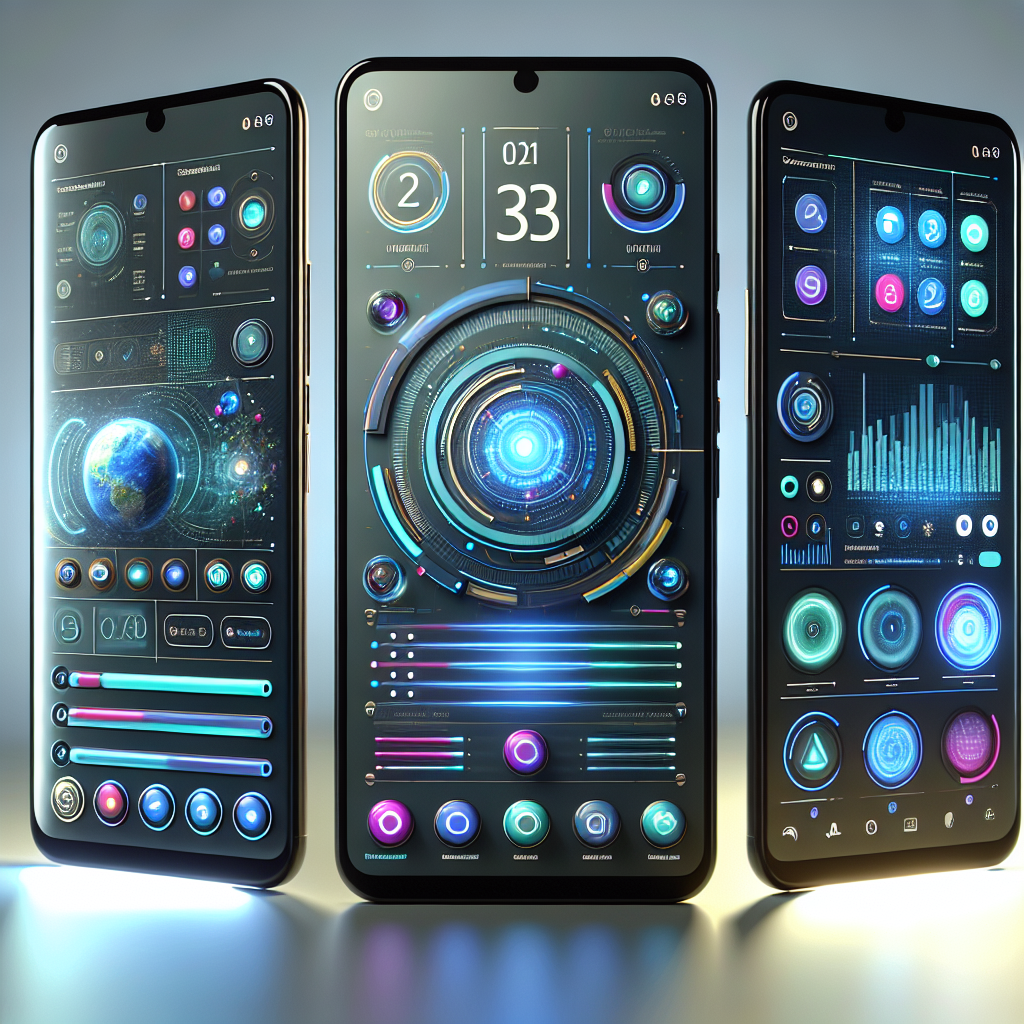Master Mobile App Development with JavaScript Today!
In today’s fast-paced digital world, mobile app development has emerged as a crucial skill for developers aiming to create versatile and high-performing applications. Among the myriad of programming languages available, JavaScript stands out as a powerful tool for building dynamic and interactive mobile apps. Its flexibility and widespread use make it an ideal choice for both novice and seasoned developers.
JavaScript offers a plethora of frameworks and libraries, such as React Native and Ionic, that simplify mobile app development by enabling code reuse across different platforms. This means developers can write a single codebase that functions seamlessly on both Android and iOS devices, thereby saving time and resources. The language’s robust ecosystem and active community further enhance its appeal, providing developers with extensive resources and support.
As the demand for intuitive mobile applications continues to grow, so does the need for skilled developers who can leverage JavaScript’s capabilities to deliver exceptional user experiences. Whether you’re a startup looking to create an MVP or an established business aiming to expand your digital footprint, mastering JavaScript for mobile app development is a strategic move that can elevate your project’s success.
Ready to transform your app idea into reality? Get a free quote today and discover how NS804 can help you leverage the power of JavaScript in mobile app development.
Key Benefits of Using JavaScript for Apps
JavaScript has gained immense popularity in mobile app development, offering a range of key benefits that make it a preferred choice for developers worldwide. One of the primary advantages is its cross-platform compatibility. With frameworks like React Native and Angular, developers can create apps that run effortlessly on both Android and iOS, significantly reducing development time and cost.
Another compelling benefit of JavaScript is its real-time updating, which allows developers to see changes almost instantly. This feature speeds up the development process by providing immediate feedback and enabling quick adjustments, leading to more efficient coding practices.
JavaScript’s extensive library support is another reason for its widespread adoption. Libraries such as jQuery Mobile and Sencha Touch offer pre-built components and functionalities that simplify complex tasks, allowing developers to focus on enhancing the user experience without getting bogged down by intricate coding.
Additionally, JavaScript is known for its active community support. Developers can easily find solutions to potential issues and learn from the experiences of others through forums, tutorials, and documentation. This wealth of resources accelerates learning and problem-solving, making JavaScript a highly accessible language for developers at all levels.
Lastly, JavaScript’s ability to create dynamic and interactive user interfaces is unmatched. This capacity to provide engaging user experiences translates into higher user retention and satisfaction, ultimately boosting the app’s success.
Essential Tools for JavaScript Mobile Development

To excel in mobile app development with JavaScript, having the right tools at your disposal is crucial. These tools not only streamline the development process but also enhance the quality and functionality of the final product. One of the most prominent tools is React Native, a powerful framework that allows developers to build cross-platform apps using JavaScript and React. Its ability to offer near-native performance makes it a top choice for many developers.
Another indispensable tool is Node.js, which is widely used for building scalable server-side applications. It enables developers to use JavaScript for both front-end and back-end development, creating a seamless integration between the two. This unified approach simplifies the development process and enhances the efficiency of app production.
For developers looking to create responsive and dynamic user interfaces, Vue.js is a popular choice. Its lightweight nature and easy integration with existing projects make it ideal for developing interactive components that enhance user experience.
Additionally, Apache Cordova offers a robust solution for developing hybrid mobile apps with JavaScript. By allowing developers to use web technologies to create apps that access native device capabilities, Cordova bridges the gap between web and native app development.
Finally, Expo is an essential tool for those working with React Native. It provides a suite of services and libraries that simplify the development process, including easy testing and deployment options. With Expo, developers can focus more on coding and less on configuration and setup.
These tools, when used effectively, empower developers to harness the full potential of JavaScript in mobile app development, ensuring the creation of high-performance and engaging applications.
Step-by-Step Guide to Building Apps with JavaScript

Embarking on the journey of mobile app development with JavaScript involves several key steps that ensure a smooth process from conception to completion. The first step is to clearly define your app’s objectives and target audience. This involves understanding the problem your app aims to solve and who will benefit from it. A well-defined goal sets the stage for effective development.
Next, selecting the right framework is crucial. JavaScript offers a plethora of frameworks like React Native, Vue.js, and Angular. Each has its strengths, so choose one that aligns with your project requirements and team expertise. For instance, React Native is excellent for cross-platform apps, while Vue.js is great for lightweight and flexible applications.
Once the framework is selected, the development phase begins. Start by creating wireframes and prototypes to visualize the user interface and user experience. This stage is essential for identifying potential design issues early on and making necessary adjustments.
After prototyping, proceed with coding the app. Utilizing version control systems like Git is vital for managing changes and collaborating with team members effectively. This ensures that all developers work on the most up-to-date version of the codebase and can track modifications.
Testing is the next critical step. Implement both unit and integration tests to ensure the app functions as intended across different devices and platforms. Tools such as Jest and Mocha can automate these tests, saving time and reducing errors.
Finally, deploy your app using platforms like the Apple App Store or Google Play Store. Ensure that all app store guidelines are met to avoid any delays in the approval process. Remember to collect user feedback post-launch for continuous improvement and updates.
By following these steps diligently, developers can successfully navigate the complexities of JavaScript mobile app development and deliver high-quality applications that meet user needs.
Best Practices for JavaScript App Development

In the realm of mobile app development with JavaScript, adhering to best practices is essential for creating robust, scalable, and maintainable applications. First and foremost, it’s crucial to follow a modular approach. By breaking down the app into smaller, reusable components, developers can enhance code readability and simplify maintenance. This approach also facilitates easier debugging and testing.
Another key practice is to implement efficient state management. Libraries like Redux and MobX help manage the state of the application more effectively, ensuring data consistency across different components. Proper state management is particularly important in larger applications where data flow can become complex.
Performance optimization should never be overlooked. Techniques such as lazy loading, code splitting, and minimizing unnecessary re-renders can significantly enhance the app’s performance. Tools like Webpack and Parcel are invaluable for optimizing JavaScript bundles, thereby reducing load times and improving user experience.
Security is another critical aspect. Developers must ensure that their apps are secure from common vulnerabilities such as Cross-Site Scripting (XSS) and Cross-Site Request Forgery (CSRF). Using libraries like Helmet for securing HTTP headers and employing strong authentication and authorization strategies are essential practices.
Consistency in coding standards is vital for team collaboration. Adopting a style guide, such as the Airbnb JavaScript Style Guide, ensures that all team members adhere to a uniform coding style, making code easier to read and maintain.
Finally, thorough documentation is a cornerstone of good development practice. Keeping comprehensive documentation not only aids in onboarding new developers but also serves as a valuable reference for future development and debugging efforts.
By integrating these best practices into their workflow, developers can harness the full potential of JavaScript to create high-quality mobile applications that stand the test of time.
Future Trends in JavaScript Mobile Development

As the landscape of mobile app development with JavaScript continues to evolve, several exciting trends are shaping the future. One of the most significant trends is the increasing adoption of Progressive Web Apps (PWAs). These apps combine the best features of web and mobile applications, providing users with fast, reliable, and engaging experiences directly in their browsers. PWAs are gaining traction due to their ability to function offline and offer seamless updates.
The rise of machine learning and artificial intelligence (AI) integration in mobile apps is another trend to watch. JavaScript libraries like TensorFlow.js are enabling developers to incorporate AI capabilities directly into their applications, enhancing personalization and user engagement through features such as image recognition and natural language processing.
Moreover, the use of cross-platform frameworks like React Native and Flutter is expected to grow. These frameworks allow developers to write code once and deploy it across multiple platforms, significantly reducing development time and costs. As these frameworks continue to mature, they are likely to offer even more robust solutions for building high-quality mobile apps.
Augmented Reality (AR) and Virtual Reality (VR) are also becoming more prevalent in mobile applications. JavaScript libraries such as three.js are making it easier to create immersive experiences, paving the way for innovative applications in sectors like gaming, education, and retail.
With these advancements on the horizon, now is the perfect time to dive into JavaScript mobile development. Whether you’re looking to build a new application or enhance an existing one, staying ahead of these trends will ensure your app remains competitive and relevant. Get a free quote today to explore how NS804 can help you leverage these future trends to create a cutting-edge mobile application. Visit our website to get started!




































